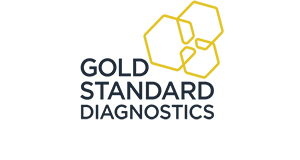NovaLisa Echinococcus IgG (Echinococcosis, Hydatidosis), ELISA Kit
Echinococcus IgG (Echinococcosis, Hydatidosis), ELISA Kit
SKU
NOVECHG0130
Packaging Unit
96 Tests
Manufacturer
Gold Standard Diagnostics
Availability:
loading...
Price is loading...
Echinococcus species are small tapeworms (max. 6 mm long) and have only a few (two to six) proglottids (see fig.). The most important species of the genus Echinococcus are Echinococcus granulosus (Dwarf dog tapeworm) and Echinococcus multilocuralis (Dwarf fox tapeworm).The Echinococcus granulosus (Dwarf dog tapeworm) occurs worldwide, with relative high prevalences in eastern and south-eastern Europe, the Mediterranean countries, the Near East, northern and eastern Africa, South America and various parts of Asia and Australia.The most important definitive host is the dog, whereby other Canidae (jackal, dingo and other wild canids) are involved in certain regions. Herbivorous and omnivorous vertebrates function as intermediate hosts, in particular domestic animals (ruminants, pigs, horses, camels) and in some areas wild animals as well.Echinococcus multilocularis (Dwarf fox tapeworm) is widespread in the northern hemisphere with endemic regions in Europe, Asia (Turkey, Iran, Russia and bordering countries all the way to Japan), and North America (Alaska, Canada, northern and central US states). In Central Europe the parasite is widely distributed with prevalence levels in foxes exceeding 50% in some areas. The most important definitive hosts are red and polar foxes, although other wild carnivores (e.g. coyotes, raccoons, wolves) as well as dogs and cats can also carry this tapeworm species. The intermediate hosts are usually rodents (field mice, voles, muskrats etc.).
| SKU | NOVECHG0130 |
|---|---|
| Manufacturer | Gold Standard Diagnostics |
| Manufacturer SKU | ECHG0130 |
| Package Unit | 96 Tests |
| Quantity Unit | PAK |
| Shelf Life | 18 months |
| Specimen | Plasma, Serum |
| CE-IVD | yes |
| Product information (PDF) |
|
| MSDS (PDF) |
|

 Deutsch
Deutsch





